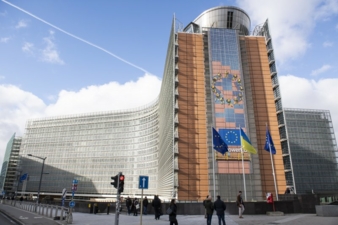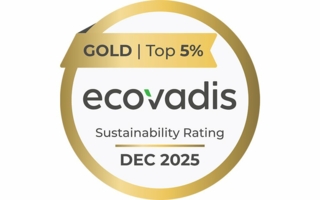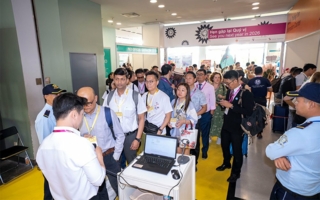13/03/2024 – Status update: EU Ban on products made with forced labor
Fierce control and non-compliance mechanisms planned
March 6th: negotiators from EU Parliament and Council reached a provisional agreement on new rules that ban products made with forced labor from the EU market. The new regulation would create a framework for enforcing this ban, including through investigations, new IT solutions and cooperation with other authorities and countries.

Brussels, March 6, 2024: Negotiators from EU Parliament and Council reached a provisional agreement on new rules that ban products made with forced labor from the EU market. © Photo: Lukasz Kobus

“Forced labor has been a reality for too long, and it remains a reality for too many. There were an estimated 27,6 million people affected by it in 2021, mostly in the private sector, but also victims of so-called state-sponsored forced labor”, EU-Parliament member Maria-Manuel Leitão-Marques. © European Union 2019 - Source : EP
According to the agreed text, national authorities or, if third countries are involved, the EU Commission, will investigate suspected use of forced labor in companies’ supply chains. If the investigation concludes that forced labor has been used, the authorities can demand that relevant goods be withdrawn from the EU market and online marketplaces, and confiscated at the borders. The goods would then have to be donated, recycled or destroyed. Goods of strategic or critical importance for the Union may be withheld until the company eliminates forced labor from its supply chains. On top organizations that do not comply can get charged with fines.
Improvement to be rewarded
Reasonable incentive of the draft – the chance for companies – expresis verbis along the entire textile and apparel supply chain - to prove themselves even after violating strict regulation: then verifiable eliminating any kind of forced labor to b involved in their end product, can be allowed back on the market. Goal of the deal now having moved towards next level of application, here expressed by Maria-Manuel Leitão-Marques from the group of Progressive Alliance of Socialists and Democrats in the European Parliament: “…to assure the EU has an instrument to ban products made with forced labor from the Union market as well as to tackle various forms of forced labor, including when it is imposed by a state.”
Goods & segments of high risk
At Parliament’s insistence, the Commission will draw up a list of specific economic sectors in specific geographical areas where state-imposed forced labor exists. This will then become a criterion to assess the need to open an investigation. The deal will enable the Commission to identify products or product groups for which importers and exporters will have to submit extra details to EU customs, such as information on the manufacturer and suppliers of these products.
To enforce the established rules digital and collaborations tools will be put in place: The “Forced Labor Single Portal” would be set up. This to include guidelines, information on bans, database of risk areas and sectors, as well as publicly available evidence and a whistleblower portal. A “Union Network Against Forced Labor Products” should help to improve cooperation between authorities.
The rules also foresee cooperation with third countries, for example in the context of existing dialogues or implementation of trade agreements. This may include information exchange on risk areas or products and sharing best practices, in particular with countries with similar legislation in place. Commission acting as a lead competent authority may also carry out checks and inspections in third countries, if the relevant company and the government of the third country agree to it.
What´s next
The European Parliament and Council will now both have to give their final green light to the provisional agreement. The regulation will then be published in the Official Journal and enter into force the following day. EU countries will thereafter have 3 years to start applying the new rules.
No general additional due diligence requirements
As a matter of fact the forced labor regulation focuses on products and will not place additional due diligence requirements on companies that do not use forced labor in their supply chains. Nevertheless, it is often associated with the directive on Corporate Sustainability Due Diligence that was provisionally agreed between Parliament and Council, but that has so far not been given a final OK from the Council.



